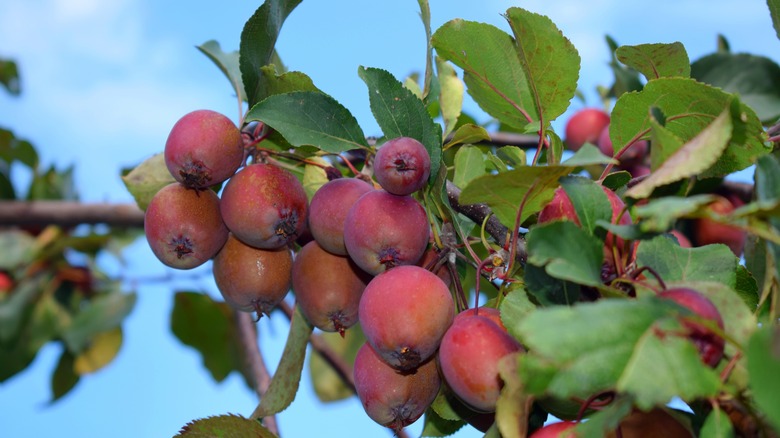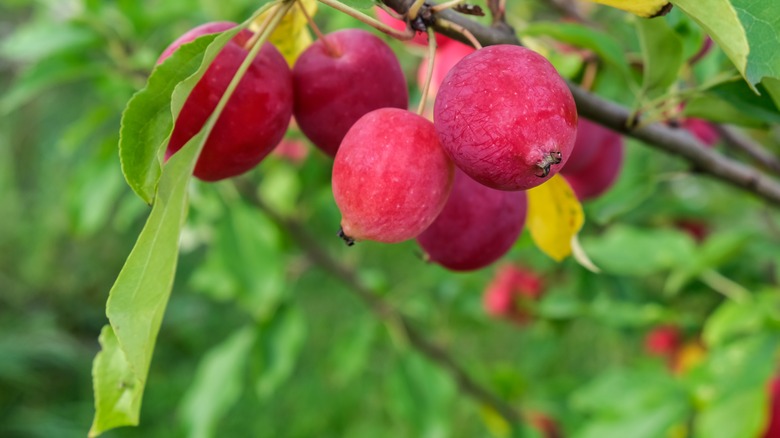Can You Get Sick From Eating Crab Apples?
If you love fall produce, you've likely been delighting in one of the all-stars of the season: apples. With a staggering 2,500 varieties grown in the U.S. alone, apples range in color from yellow to green to red, with flavors varying from tart to sweet to everything in between (via SelectHealth). And although they're available year-round, most varieties are harvested in the fall; they taste amazing during this season, the University of Utah explains, because the sugars in the fruit are at their height.
It's no wonder, then, that the autumn table is full of apples in every form, from mulled cider to an apple harvest salad with blue cheese to spiced apple cake. And while you're probably used to cooking and baking with well-known varieties such as Granny Smith and Red Delicious, tiny, tart crab apples are also in season in the fall and winter, according to My Frugal Home. So if you've been seeing them on trees in your area, you might be wondering: Can I eat those?
Crab apples won't make you sick
Are you familiar with crab apples? These small, wild-grown fruits are simply a tinier, undomesticated version of commercial apples; according to Healthline, they can tend towards bitterness and sourness since they haven't been bred for sweetness like larger apples. And as with other commonly foraged fruits, as opposed to being bought from the grocery store or farmers' markets, crab apples are sometimes misunderstood as poisonous, which isn't the case at all. The fruits are totally edible, although you'll want to avoid the core and seeds, which contain low levels of cyanide, just like commercial apples.
Unless you like very tart fruit, you'll probably want to sweeten and cook your crab apples. Kitchn notes that the fruits are typically made into crab apple jelly or else baked into pies, crumbles, and crisps just like regular apples — though you might need to add a bit of extra sugar.

